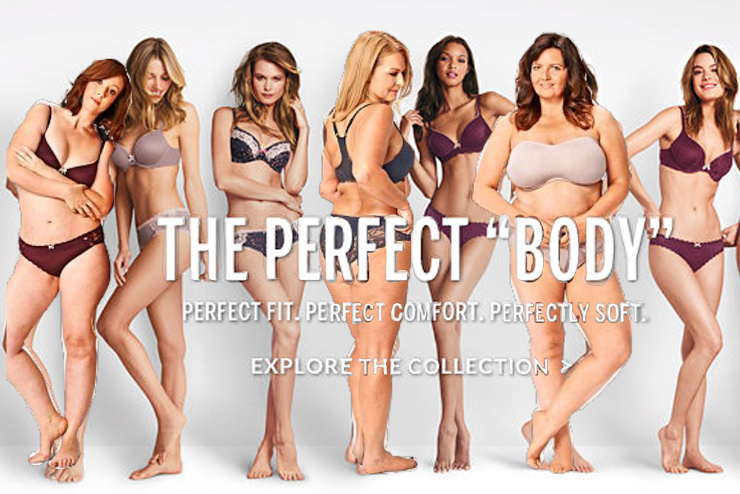Victoria Secret came under fire for their ad campaign featuring the tagline “The Perfect Body”. The ads was to promote their line of underwear and as seen in the picture below, the models in are all very thin, leggy, and large on top. After the release, thousands of people were offended and demanded Victoria Secret pull the ad. Victoria Secret listened to the critics but kept the models and only changed the wording on the ad to “A body for Every Body”.
Attention Generating
Firstly, the ad was attention generating. Advertisements usually have a purpose and while their intention may have been to promote their line of underwear, the focus quickly changed to what was seen as a negative aspect of the ad. Their ad delivered an unintended message which may have been taken out of context. Yet if the main purpose was for their ad to be seen, then it met and surpassed that goal.
Distributed Subjectivity
As an art operating in new media, the Victoria Secret ad created an idea that was subject to interpretation and therefore, variation. What made the ad offensive was the picture of the women together with the words. Some perceived the message as putting down women who don’t have “the perfect body” as depicted in the ad. They also saw that ad as perpetuating low-esteem among women. It no longer was a matter of right or wrong but really how it made people feel.
Spreadability
As a result, the negative attention that the ad received from those who opposed it far exceeded what Victoria Secret could have done. Through the apparatus of electracy, the ad quickly went viral and people felt the need to respond to it. It seems that a negative response is often more of a trigger that a positive one and that it will have more of a chance of spreading. Therefore the feedback of the ad became a collaboration which is a quality of spreadability.
The Victoria Secret ad failed ethically in that it promoted unrealistic beauty standards, it was insensitive, and advanced stereotypical ideas. In orality, the main practice was religion and gave us the guidelines to be ethical. However, according to Ulmer, this age of electracy has moved us to an era where entertainment is the practice. In this era, it can be difficult to be productive in yet still be ethical with so much individual freedom and little responsibility.
As Mumford pointed out “Here, at the core of automation, lies its principal weakness, once the system becomes universal, its exponents see no way of overcoming its deficiencies, except by a further extension of automation”. This was seen when Victoria Secret eventually changed the wording, they did not change the picture or the feeling that the picture resonated. One the rules of advertising should be: don’t offend your target market and today, through social media, consumers have the means to take action against things they don’t like. In an electrate society, we have the power to challenge and change what was once the norm and provide instant feedback which in some cases can be harsh and damaging.
Below is a picture that I composed from the original picture and other postings. For me, this picture offers a better representation of how a perfect body looks. The project lives up to the standard of beauty because it show several women in different sizes. It is possible that an ad like this would not have spread so far or had gone viral but it portrays social consciousness and it would not offend so many people. Therefore it meets the ethical obligations of the advertisement.





